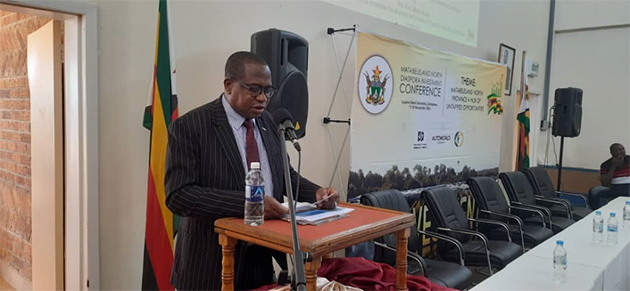
Zimbabwe seeks more solar power investment
Leonard Ncube, [email protected]
THE Government is urging more investment in renewable energy, particularly solar, which has the potential to alter the country’s environmental and economic position while earning millions of dollars in carbon credits.
The Government is already working with scores of Independent Power Producers who have invested in solar energy to augment electricity shortages and also benefit the industry through net metering. Net metering is a system that allows consumers to generate their own electricity from solar panels and sell the excess to the grid.
Zimbabwe has huge renewable energy potential, especially from solar. The country’s biggest solar plant in terms of output is at Blanket Mine in Gwanda, where a 12MW solar plant was installed. Solgas solar plant in Mabale, Hwange, with a capacity of 5MW, is the second biggest. Also in Hwange District, in Chidobe, work is underway to construct a 100MW solar plant, which will be the country’s biggest. Lupane State University plans to establish a 50MW solar farm worth US$50 million, while Umguza Rural District Council, working with Radah Properties, is working on a 20MW solar farm.
Speaking in Lupane recently, Finance, Economic Development and Investment Promotion Minister Professor Mthuli Ncube said investing in solar energy has endless and hidden benefits that come through carbon sequestration. Carbon sequestration is the process of capturing and storing carbon dioxide from the atmosphere.
“We have discovered that climate change is also an opportunity in the sense that you can launch what are called carbon credits. Solar projects also give you carbon credits. The way carbon credits work is about removing carbon dioxide from the air, which is called carbon sequestration, and earn carbon credits. So there is a lot more in that project than just solar power. So those that are hesitating to invest in solar, please do. There is a lot more hidden revenue than you currently think,” said Prof Ncube.
He encouraged citizens and communities to plant trees and establish plantations in their local areas to restore forests and reduce gaseous emissions. This comes as Zimbabwe joins the rest of the world at the 2023 United Nations Climate Change Conference or Conference of the Parties (COP28) from Thursday until December 12 in United Arab Emirates. The conference brings the world together at a critical moment for global transformative climate action.
Prof Ncube said the Government has made the investment environment conducive through various tax incentives and rebates for investors.
Zimbabwe is also taking the Government’s climate-proofed farming concept, Pfumvudza/Intwasa, to COP28, where local experts are expected to participate and present its propositions among other global players. The country’s conservation farming model has been credited for improving yields and boosting food security at household level. Due to its environmental conservation impact, environmental experts say the model could be traded for carbon credits at international level and in the process generate foreign currency for the country.
A pan-African climate action movement, Africa Voluntary Carbon Credits Forum (AVCCF), will be taking Intwasa to the high-level global summit. AVCCF executive director Mr Anglistone Sibanda recently said environment conservation can develop communities who will benefit from carbon credits. He said Intwasa regenerative agriculture keeps high amounts of carbon dioxide in the soil and this creates carbon credits that can be bought by those that have over the years polluted the environment as carbon credits and benefit the whole of Zimbabwe in line with the Paris Agreement.
Environment, Climate and Wildlife Management Permanent Secretary Dr Proper Matondi said climate financing remains critical and will be one of the focus areas at the upcoming conference. He said there is a need to come up with strategies and adequate human resources to address some of the issues, with loss and damage a priority for Africa and the developing world.